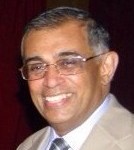Citizens, Nations And State
By Rajasingham Narendran -May 31, 2014
 “As all men have a right- to be free, so all nations have a right to live freely. However, the larger nations whose freedom is secure still tend to consider freedom a privilege to which they are entitled. This is why even when the ‘threat’ to the ‘free world’ is mentioned, only the still free nations come to mind and silence covers the enslaved, their freedom not being a matter of concern. Not genocide alone is the shame of our century! Equally shameful is the silence of the world which call itself ‘Free’, ‘the closing of eyes’ ( and of consciences too) in the face of this genocide. If we consider other centuries, we can agree that always those who were free tended not to notice those who were oppressed by slavery. Because of this, in all ages the consciousness of freedom has glowed most clearly among the enslaved. Fate has determined that we, the enslaved of all nations, testify to freedom in this age. A free nation in an independent State such is the authentic nationality principle, and such is our ideal” (Juozas Girnius)
“As all men have a right- to be free, so all nations have a right to live freely. However, the larger nations whose freedom is secure still tend to consider freedom a privilege to which they are entitled. This is why even when the ‘threat’ to the ‘free world’ is mentioned, only the still free nations come to mind and silence covers the enslaved, their freedom not being a matter of concern. Not genocide alone is the shame of our century! Equally shameful is the silence of the world which call itself ‘Free’, ‘the closing of eyes’ ( and of consciences too) in the face of this genocide. If we consider other centuries, we can agree that always those who were free tended not to notice those who were oppressed by slavery. Because of this, in all ages the consciousness of freedom has glowed most clearly among the enslaved. Fate has determined that we, the enslaved of all nations, testify to freedom in this age. A free nation in an independent State such is the authentic nationality principle, and such is our ideal” (Juozas Girnius)
The terms Country and State are synonymous and both apply to self-governing political entities. A nationhowever, is a group of people who share the same culture but do not have sovereignty. A state with the ‘s’ in lower case, constitutes a part of a whole country, with limited self-governing powers. Citizens are free and thus have freedom when they can lead a life of their choice; are free to choose their leaders; are treated equally, justly and with dignity in a State that functions within just laws; and within the parameters of a constitution that guarantees his/her rights on the basis of universally acceptable civilizational norms.
What makes an independent State are: Has permanent residents; has absolute sovereignty over its territory; has organized economic activity that regulates foreign and domestic trade and issues money; has a transportation network for moving goods and people; has an education system; has recognition from other independent States.
A nation is a group of homogenous people- community who share the same culture, language, institutions, religion, and history- usually a group of people larger than a tribe or community. Territorially is not a necessary precondition, although it provides a necessary pre-requisite for sharing power within a State. When a nation of people has an independent State of their own it is called a nation-state. There are nations with States and nations without States (Kurds & Tamils). France, Germany, Egypt and Japan are nation-States. Canada and Belgium are States with two nations. The USA is called a nation-state, because of the shared American ‘ culture’ , despite it being a multicultural society. The Tamils of Indian origin working in the plantations in the hill country in Sri Lanka were a stateless people until J.R.Jayewardene finally resolved the issue. Read More

